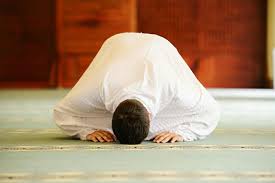The Five Pillars of Islam
Praise be to Allah, Lord of the Universe, the Most Compassionate and the Most Merciful.
He fashioned man in the most excellent way possible after molding him from clay. He made His closest angels bow before him and preferred him beyond all other creatures. He bestowed the mentality that converted his skepticism into a firm conviction. He showed him the two ways and gave him two eyes, one tongue, and two lips.
He dispatched messengers to inform him of the good news, warn him, alert him, and keep him from following the cursed demon astray. He advised him to worship Allah alone and adhere to His way with insight and a firm belief, rather than imitating the beliefs of his forefathers, friends, and relatives who blindly followed those who came before them. The Devil is his enemy, he was told, therefore he should not worship him.
By the grace of Allah, we will be discussing the five essential entities that must be known by a Muslim., We will be discussing the five pillars of Islam, these five pillars must be acknowledged by any individual that calls him or herself a Muslim to be a real Muslim. These five pillars are not based on an acknowledgment only but also have various activities that have to be performed by a Muslim, but before we discuss the five pillars of Islam, let’s take a look at “What is Islam“
What is Islam?
The word “Islam” is derived from the Arabic verb “Aslama” which means “he submitted” then the word Islam means “Submission” linguistically but in the religious context, it is the total submission to the will of Allah in all aspects while the most important submission is the monotheistic worship of Allah. Sometimes Islam is referred to as Tawheed (Monotheism) as that is the first criteria to become a Muslim.
According to the definition given by sayyidina Umar (May Allah be pleased with him) he
described Islam as a word with connotations, that word is embedded with two meanings,
that is, both submission and peace to Allah( the most exalted, the almighty). The Islamic religion
was sent down to discipline mankind and prepare them spiritually, physically, and
intellectually in the way that is best for the fulfillment of the mission, they are created for.
Allah’s Messages are meant to build up the human being fit for establishing civilization and
creating prosperity in the world. For this end, Allah commands us to do what is beneficial
to us and forbids all that cause harm to us. So for peace to reign in the whole world,
practicing Islam is the way out. The literature of Islam doesn’t support religious
discrimination of any form but peaceful coexistence among Muslims and non-Muslims.
Islam indeed has five pillars which are; 1) At-Tawheed (monotheism), 2) As-solah (five
daily prayer), 3) Az zakah (obligatory charity), 4) As-siyaam (fasting in the month of
Ramadan), Al-haj (the holy pilgrimage) but those are just the pillars, the building of Islam is
gigantic.
Now, let’s discuss the five pillars of Islam one by one.
- At-Tawheed (Monotheism)
This is the acknowledgment and the affirmation of the oneness of Allah in worship and all other aspects of our lives. Tawheed also includes the belief in the holy Prophet Muhammad (May the peace of Allah be upon him) as the servant and a messenger of Allah. This aspect is being treated on our blog separately. To read more on Tawheed, please follow this link https://alharudyacademy.co.uk/2022/08/17/intoduction-to-monotheism-tawheed/
2. Observation of Five Daily Prayers (Iqoomatus solah)
Muslims zealously uphold the Five Pillars of Islam in their daily lives as a sign of their allegiance. The most obvious way to do this is through daily prayers.
How to observe the five daily prayers
Muslims, like members of other religions, are required to perform certain rituals as part of their regular prayers. Muslims must be in good health and have the mental clarity to worship. According to Islamic teaching, Muslims must perform the ablution (wudu), also known as wudhu, of their hands, feet, arms, and legs before praying. Worshipers are required to wear clean, modest attire.
It’s time to find a location to pray when you’ve finished the ablution. In mosques, where they can pray in congregation, many Muslims offer their prayers (This is obligatory for men except otherwise). But one can pray in any calm location, including a house or workplace corner. The only requirement (most essential about positioning) is that the prayers should be observed facing Qibla (Makkah).
The prayers are always observed while making a set of ritualized Rak’ha (movements and gestures) that are meant to exalt Allah and demonstrate devotion. Based on the time of day, the Rak’ha is performed two to four times.
Prayer Periods
The adhan, or daily call to prayer, serves as a reminder of the salat in Muslim communities. A muezzin, who serves as the mosque’s appointed call to prayer, delivers the adhan from the mosque. The muezzin recites the Takbir and the Kalimah at the call to prayer.
Traditionally, the calls were made from the minaret of the mosque without any amplification; however, many contemporary mosques now employ loudspeakers to improve the clarity of the call for the devout. The position of the sun determines the actual prayer times.
Fajr: This prayer, which is offered before daybreak, brings God to mind as the day begins.
Dhur: After the labor of the day has begun, one takes a break shortly after noon to remember God once more and ask for His guidance.
Asr: People take some time in the late afternoon to reflect on God and the bigger picture of their lives.
Maghrib: Muslims commemorate God once again as the day draws to a close shortly after the sun sets.
‘Isha: Muslims pause once more during ‘Isha to reflect on God’s presence, direction, mercy, and forgiveness before turning in for the night.
Devout Muslims view skipping prayers as a grave act of disbelief. But occasionally, events do occur that make it necessary to miss a prayer time. Muslims are expected to make up missed prayers as soon as feasible or, at the very least, observe them at the time of the subsequent scheduled salat.
By the grace of Allah, we will complete this topic on our next blog update and solah will be discussed broader in the future.
Sallaamun alaykum wa rohmotulloh wa barokaatuh




